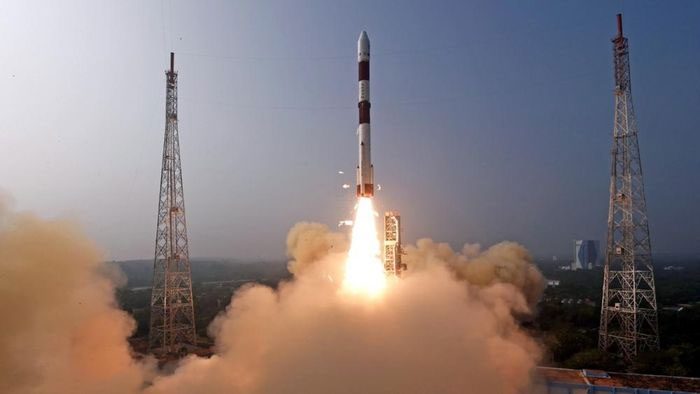On January 1st, India successfully launched the X-Ray Polarimeter Satellite (XPoSat) into Earth’s orbit to study cosmic black holes and neutron stars.
In its first space mission of 2024, the Indian Space Research Organisation (ISRO) successfully launched the X-Ray Polarimeter Satellite (XPoSat) from the Satish Dhawan Space Centre on Sriharikota Island, located in the southern state of Andhra Pradesh, at 9:10 AM local time.
This is ISRO’s first dedicated scientific satellite designed to measure the polarization of X-ray radiation from celestial sources in space. X-ray polarization serves as a critical diagnostic tool for examining the radiation mechanisms and geometry of celestial sources.

ISRO successfully launched the X-Ray Polarimeter Satellite (XPoSat) from the Satish Dhawan Space Centre on January 1st – (Photo: ANI).
The satellite carries two instruments: POLIX, a polarimeter for X-rays, and XSPECT, a time and spectral resolution measurement device for X-rays.
Indian Prime Minister Narendra Modi praised the successful launch of the X-Ray Polarimeter Satellite, describing it as a great start for Indian scientists in 2024. The launch is seen as a positive signal for the space sector and will enhance India’s capabilities in this field.
The Indian aerospace industry reached new heights in 2023, with the successful landing of the Chandrayaan-3 spacecraft on the Moon’s South Pole. The country also successfully launched the Aditya-L1 mission, dedicated to studying the Sun. These significant milestones not only solidify India’s position in the global space industry but also motivate private space companies in India.


















































